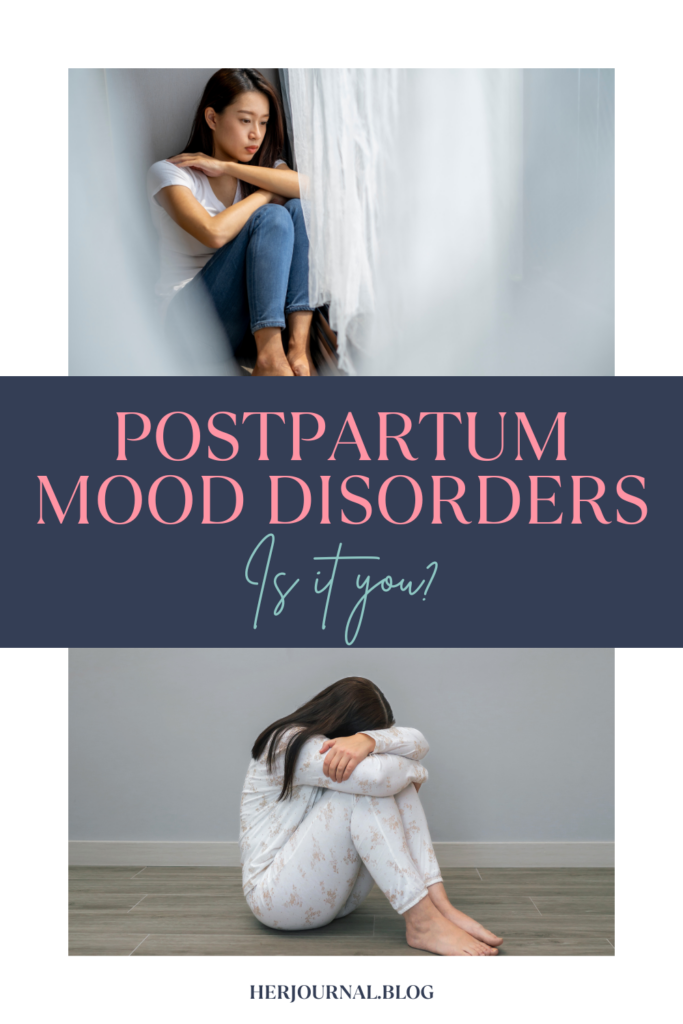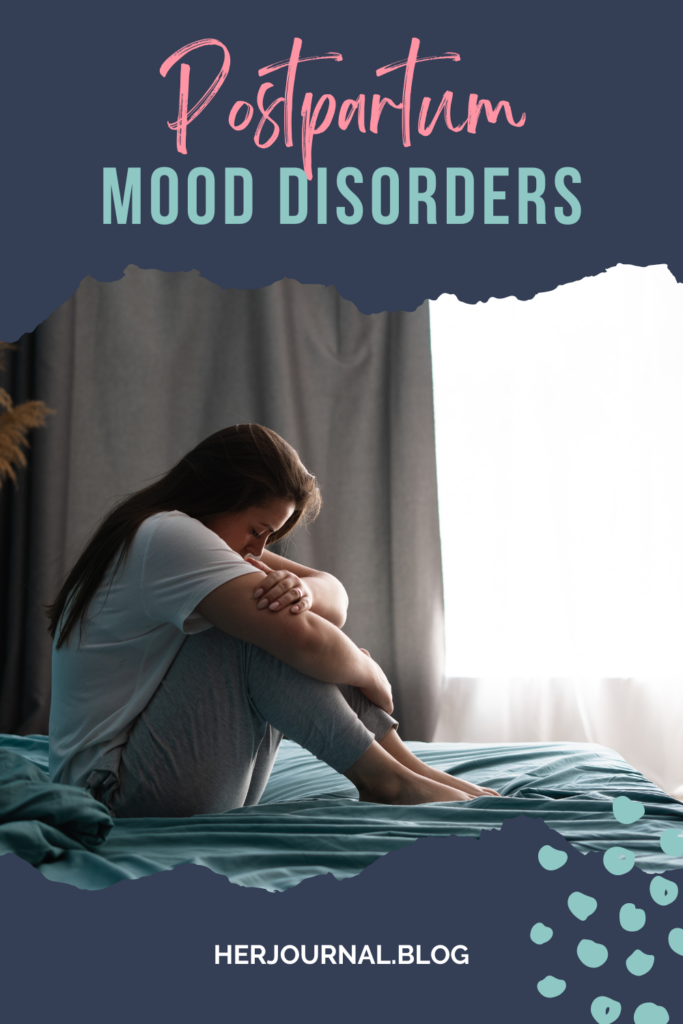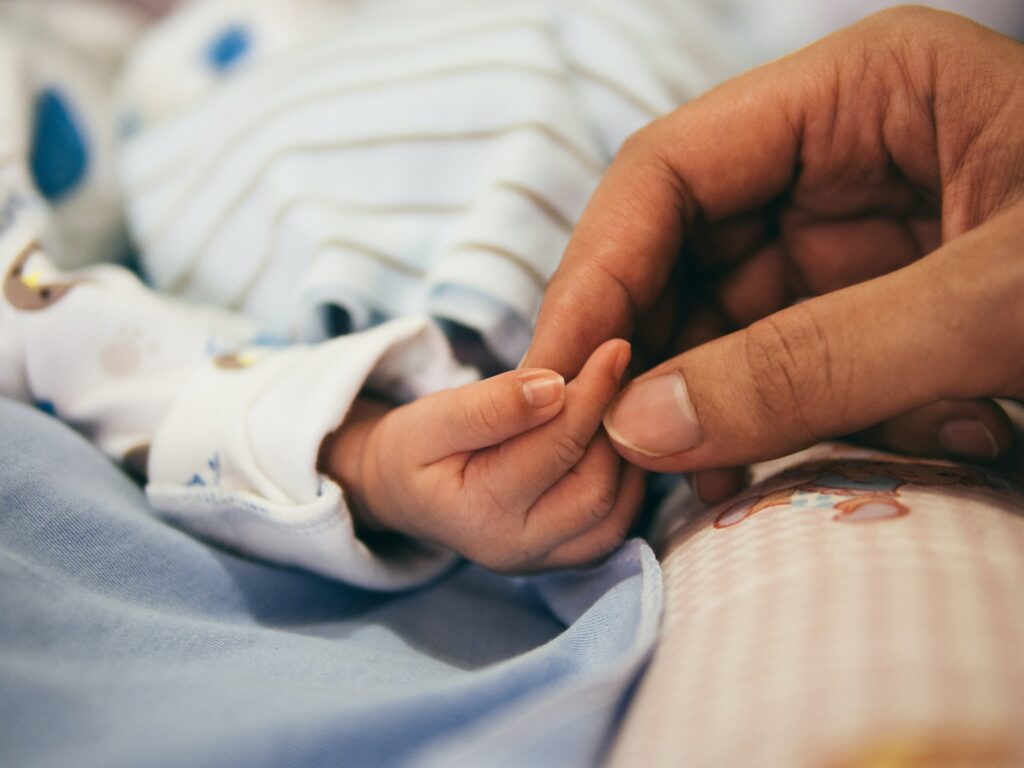We may earn money or products from the companies mentioned in this post.
Going through the postpartum period is both joyous and confusing. You are experiencing all the euphoria that comes with welcoming a new life into your world. At the same time, you are experiencing all of the lows that come with postpartum recovery and healing. During this beautiful chaos, it’s important to assess yourself for any postpartum mood disorders you may be dealing with.
Before I had my first baby, I would describe myself as a generally happy person. I was optimistic about life and found joy in the silliest of things. After I gave birth, all of that changed and I didn’t recognize myself anymore. Around four months postpartum, I realized I was experiencing postpartum depression.
It was a very confusing time in my life. I didn’t know what signs to look for, so I struggled for much longer. Thankfully, you don’t have to struggle like I did. Now, you can learn and understand what postpartum mood disorders are and how to assess yourself to know if you need to take further action.
Related: The First Month Postpartum: What to Expect After Birth
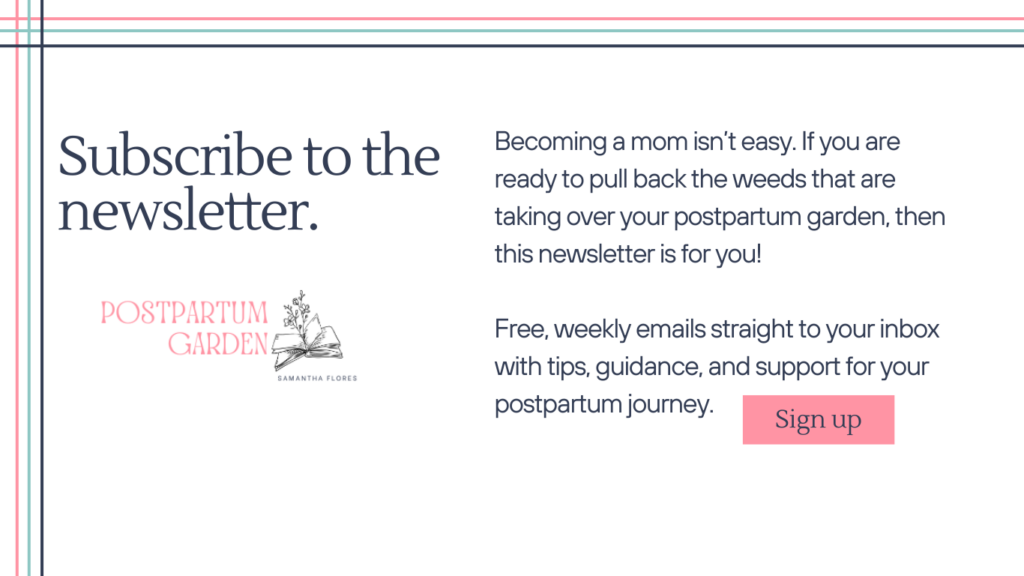
What are Postpartum Mood Disorders?
Given the current research, there are five postpartum mood disorders that are referred to when assessing a mother. Learn more about each one below.
Postpartum Depression
Thankfully, one of the more talked about postpartum mood disorders is postpartum depression. Back when I had my first baby, none of the mood disorders were talked about, so I didn’t have any of the resources I needed to care for myself. Nowadays, mothers aren’t shying away from sharing their experiences with postpartum depression.
Postpartum depression can happen at any time during the first year following birth, according to the research available today. Some research suggests that postpartum depression can last until a baby’s second birthday and possibly longer. This is important to understand because many mothers don’t realize they could be experiencing postpartum depression years after birth.
Postpartum depression is a depressive disorder that occurs after birth. It includes having strong feelings of sadness and also depression for seemingly no good reason. Learn more about postpartum depression signs and symptoms.
Related: Helpful Self-Care Strategies for Moms Dealing With Postpartum Depression

Postpartum Anxiety
Postpartum anxiety is another common postpartum mood disorder. It involves worrying and feeling anxious about things that wouldn’t generally cause you to feel uneasy. With postpartum anxiety (PPA), many mothers express that they feel extreme worries and fears in addition to having panic attacks, feeling a loss of control, and even experiencing dizziness.
No matter how much the mother tries to calm herself, she continues to feel uncontrollable anxiousness during PPA. While there is typically good reason to have some worries or hesitations when you are learning to care for a baby, postpartum anxiety promotes excessive worrying and sucks the joy out of being a mom.
Postpartum OCD
Postpartum OCD (obsessive-compulsive disorder) isn’t talked about often. Many mothers typically attribute OCD feelings to postpartum anxiety because they can feel similar. However, it is important to understand postpartum OCD and distinguish it from other postpartum mood disorders.
Postpartum OCD can be described as having upsetting or unwanted thoughts/images over and over (obsessive). It can also feel like needing to do things over and over again (compulsive).
Postpartum Bipolar Disorder
Postpartum bipolar disorder is described as extreme or severe depression. It presents itself in manic episodes. Other symptoms that have been reported with postpartum bipolar disorder include irritability, rapid speech, racing thoughts, little need for sleep, and trouble concentrating.
More research needs to be done for postpartum bipolar disorder to understand what causes this disorder. Postpartum bipolar is sometimes misdiagnosed as postpartum depression, leaving moms with the wrong treatment plan. The best advice I can give is to advocate for yourself. If something doesn’t feel right, keep fighting until someone (your doctor) listens to you.
Related: Postpartum Nutrition: What Mothers Need After Giving Birth

Postpartum Psychosis
Postpartum psychosis is a very rare postpartum mood disorder. A very small percentage of mothers (1 in 1,000) are diagnosed with this condition. While it’s unlikely that you will be diagnosed with it, it’s still important to learn about it.
Postpartum psychosis is the severest form of mental illness, according to the National Institutes of Health. This condition completely disrupts the mother’s sense of reality. Some of the symptoms include hearing voices and/or seeing things that others can’t (hallucinations). There can be periods of confusion and believing that things are true when they are not. Postpartum psychosis is a mental health emergency and needs to be treated immediately.
Other Questions Moms are Asking about Postpartum Mood Disorders
Learning about postpartum mood disorders can feel overwhelming if you are trying to figure out if you are struggling with any of them. Take a look at the following questions other moms are asking.
What is postpartum rage?
Postpartum rage can be a symptom of postpartum mood disorders. It can be a symptom of postpartum depression or postpartum bipolar disorder. It can manifest in the forms of anger, frustration, and losing your temper easily.
Hormones are thought to contribute to postpartum rage. In reality, more studies and research are needed in order to properly assess postpartum rage. If this is something you are experiencing, just know that you are not alone and that you are not a bad mom if you feel rage.
Related: Postpartum Body Changes: How to Accept the New You

When is the hardest time postpartum?
This answer will be different for each mom. Everyone has a different life, different personalities, and different birth experiences. What might be the hardest time for you may not be for another mom.
You will find many moms who describe 6-8 weeks postpartum as the hardest time postpartum. This is usually when the “honeymoon” phase of having a baby has ended, sleep deprivation has taken a toll, and life feels chaotic. Keep in mind that this doesn’t mean that you will definitely have a hard time during this timeframe.
Who is more prone to postpartum depression?
There are many risk factors for postpartum depression. However, just because you aren’t considered “at risk” doesn’t mean that you can’t be affected by PPD.
The risk factors include moms who’ve had PPD before, first-time mothers, young mothers (under 25 years old), mothers who have a history of depression, and mothers with multiples. This list is changing as more and more research is conducted to better understand postpartum depression.
Related: Postpartum Hair Loss: What to Expect and How to Help
What should I do if I am experiencing postpartum mood disorders?
The first thing you should do is make an appointment with your provider to receive a proper diagnosis. From there, you can develop a plan that your provider can help you follow and monitor your success.
Medication is almost always recommended by providers to treat postpartum depression. However, there are other options to consider as well if you don’t want to take medication.
Consider how your postpartum nutrition can have an impact on postpartum mood disorders. PPD has been linked to anemia, which is low iron in your blood. Other studies show postpartum depression is linked to other parts of your body like poor functioning thyroid. Your nutrition can help improve these areas and increase your chances of becoming a postpartum depression survivor.
In addition, you can use my Fourth Trimester: A Postpartum Depression Guide ebook to help you navigate this challenging time. This guide has been known to help other moms discover what they are feeling and how to get their spouse/partner involved in healing.
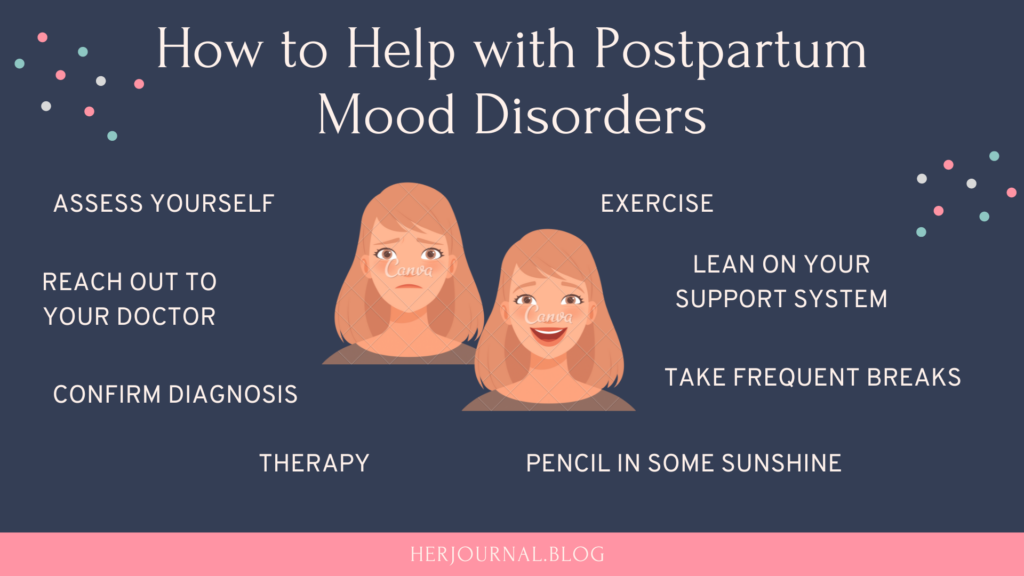
Postpartum Mood Disorders Are Common But Not Normal
Postpartum mood disorders are common, but that doesn’t mean they are normal. In my experience (and through research), these mood disorders are a sign that something else is going on in your body. The mood disorders are trying to tell you something.
It’s important to get to the core of your postpartum mood disorder. This can happen through therapy, partnering with a life coach, joining a community with other moms, writing in a journal, and more. You have to find the right treatment that works for you (with your doctor’s approval).
You don’t have to struggle through postpartum mood disorders. It is time to take action and get the help that you need for your and your baby’s sake. What you do now (or don’t do) will have a direct impact on your future motherhood journey. Take the time to understand what you are experiencing and discover ways to help yourself through it.
Related: Understand & Overcome Depression: Tips for Your Family
Pin It!
